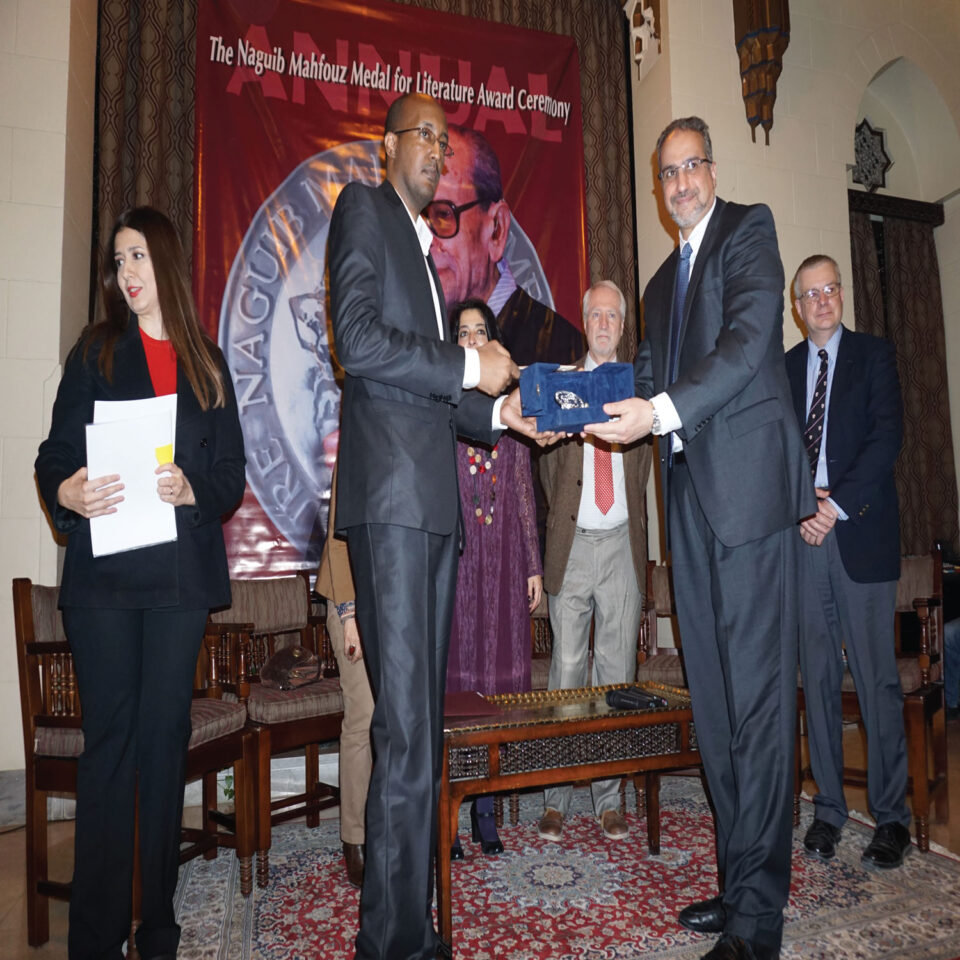On December 11, 2014, Hammour Ziada became the first Sudanese author to win the Naguib Mahfouz Medal for Literature for his 2014 novel The Longing of the Dervish (Shawq al-Darweesh). At its core, the novel tells the story of two enslaved lovers—a Sudanese man and a Greek woman— who are thrown together then torn apart by the first victories of the 1881 Mahdi uprising.
The novel opens with the fall of Khartoum, the defeat of the Mahdist army, and the release of the slave Bekhit Mandil from prison. Mandil, who we learn has been a fighter in the Mahdist army and then the lover of the Greek slave Theodora, prepares to avenge his beloved, who died fleeing the country.
In their citations, the prize judges drew parallels between the “fanatical, extremist, and violent” Mahdi uprising and similar religious movements today. In the novel, judge Rasheed Elenany wrote in a prepared statement, “Belief in love is offered as a redeeming, if not necessarily triumphant, alternative force for the hate and cruelty of fanatical religious faith.”
Ziada, who was born in Umm Durman, Sudan in 1977, has lived in Cairo since 2009. He’s published two previous short story collections. This is his second novel.
The 2014 Mahfouz Medal judging committee was made up of writers, translators, and academics: Tahia Abdel Nasser, Shereen Aboulnaga, Mona Tolba, Humphrey Davies, and Rasheed Elenany.
The award, announced each year on Mahfouz’s birthday, was first given in 1996. Previous winners include celebrated authors from across the region, including Egyptian Yusuf Idris, Moroccan Bensalem Himmich, Lebanese Hoda Barakat, Palestinian Mourid Barghouti, and Syrian Khaled Khalifa, who won last year’s prize.
Naguib Mahfouz Medal winners receive the medal and a USD 1,000 prize. They’re also offered a contract for translating their work with AUC Press.








